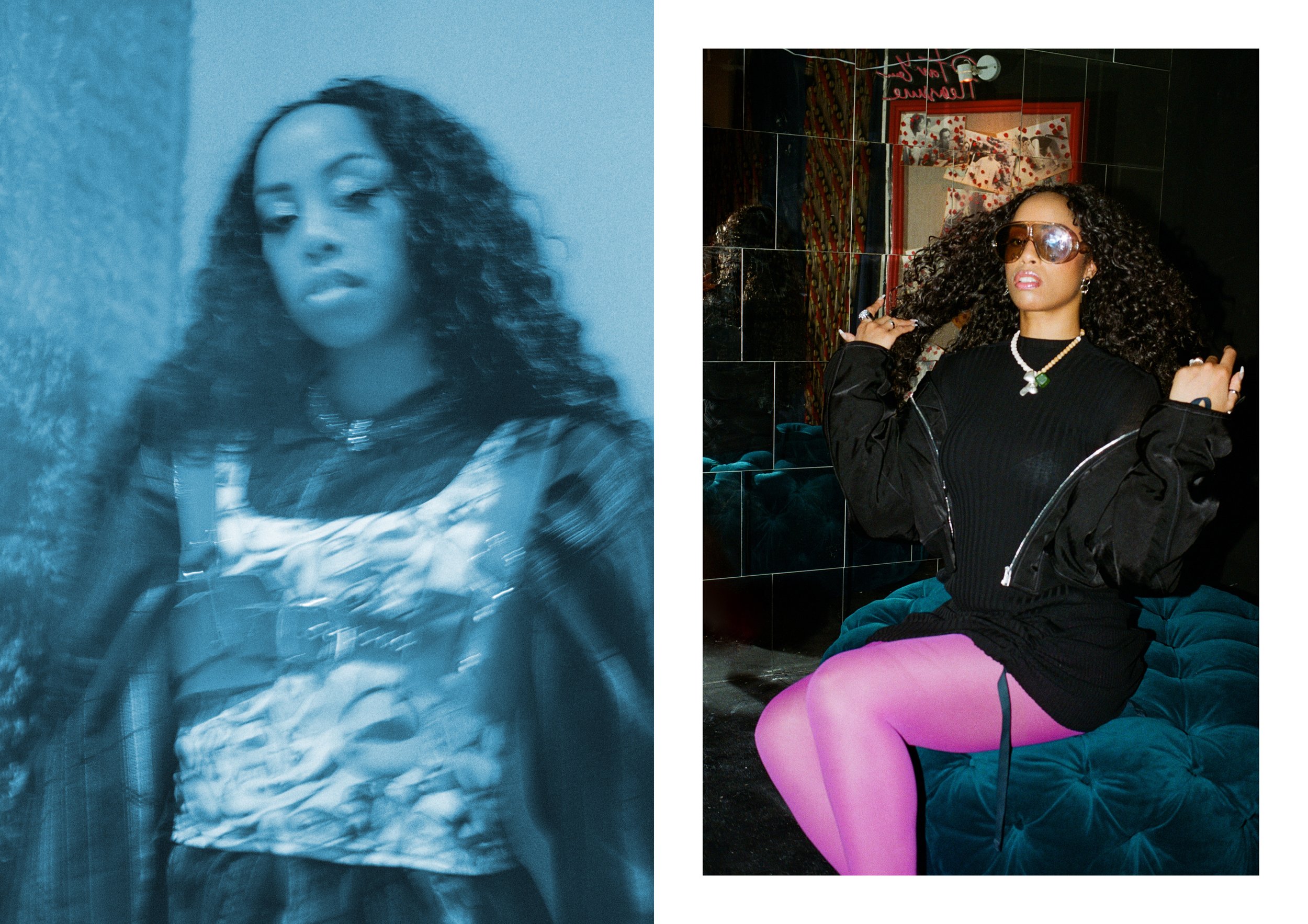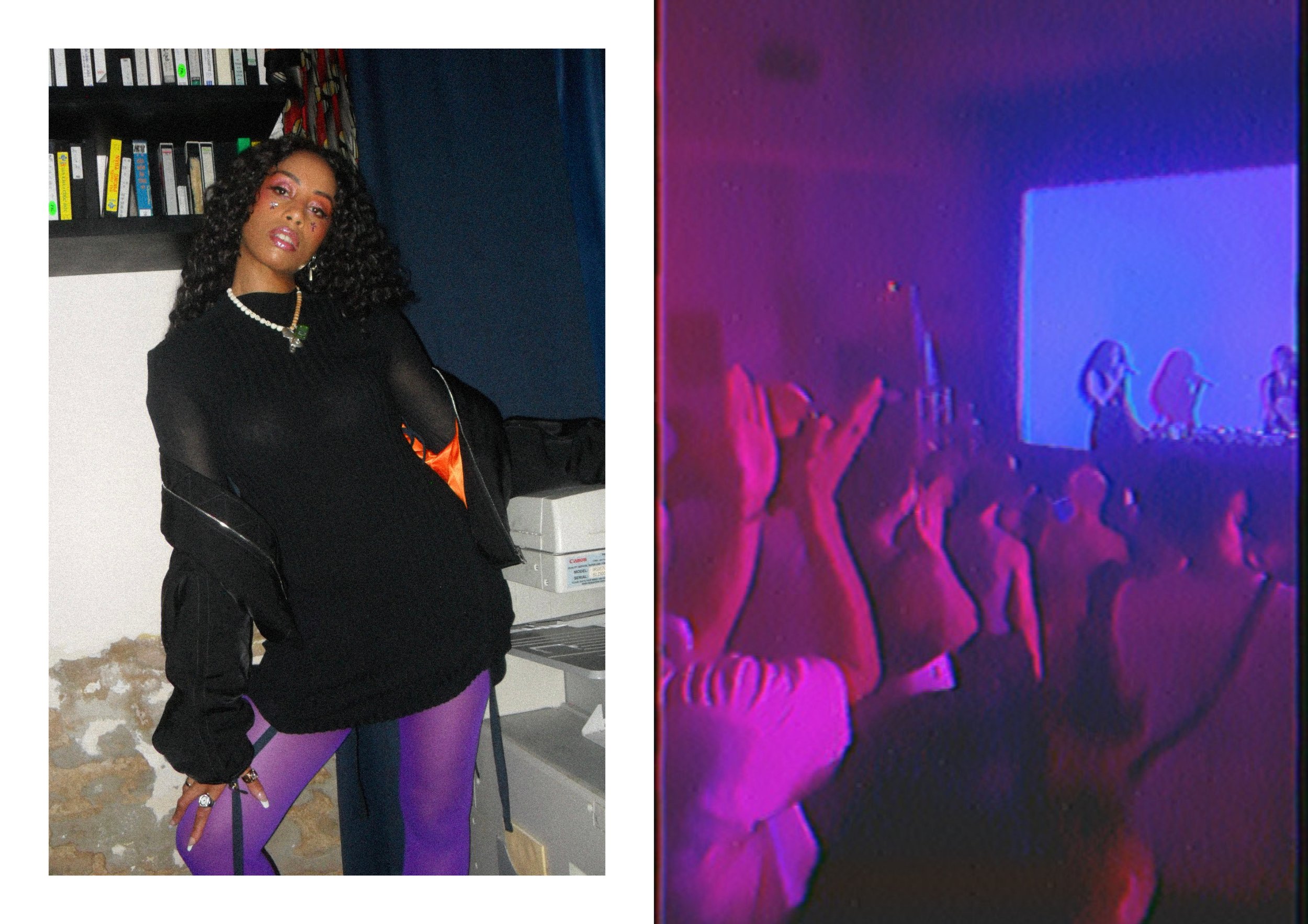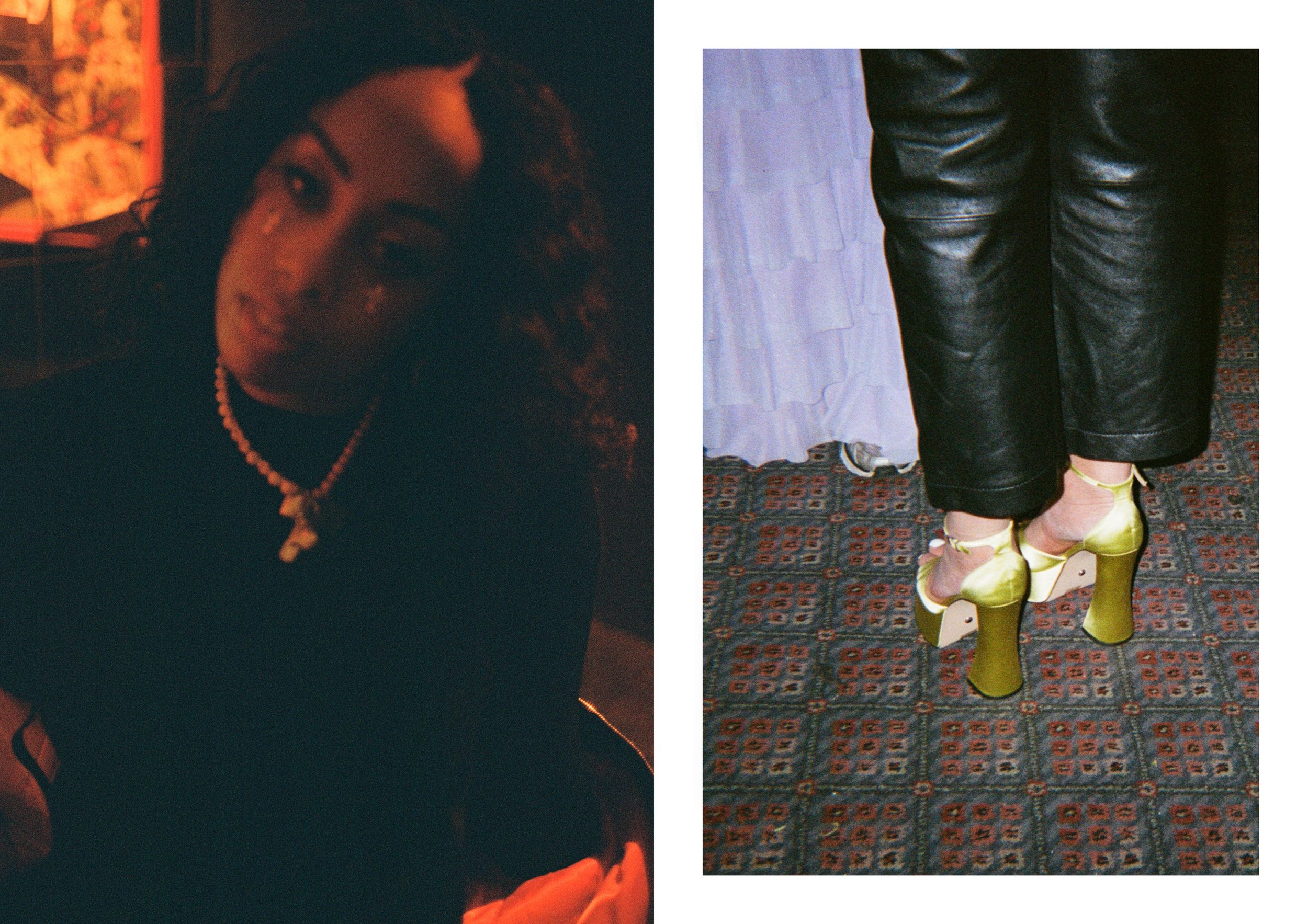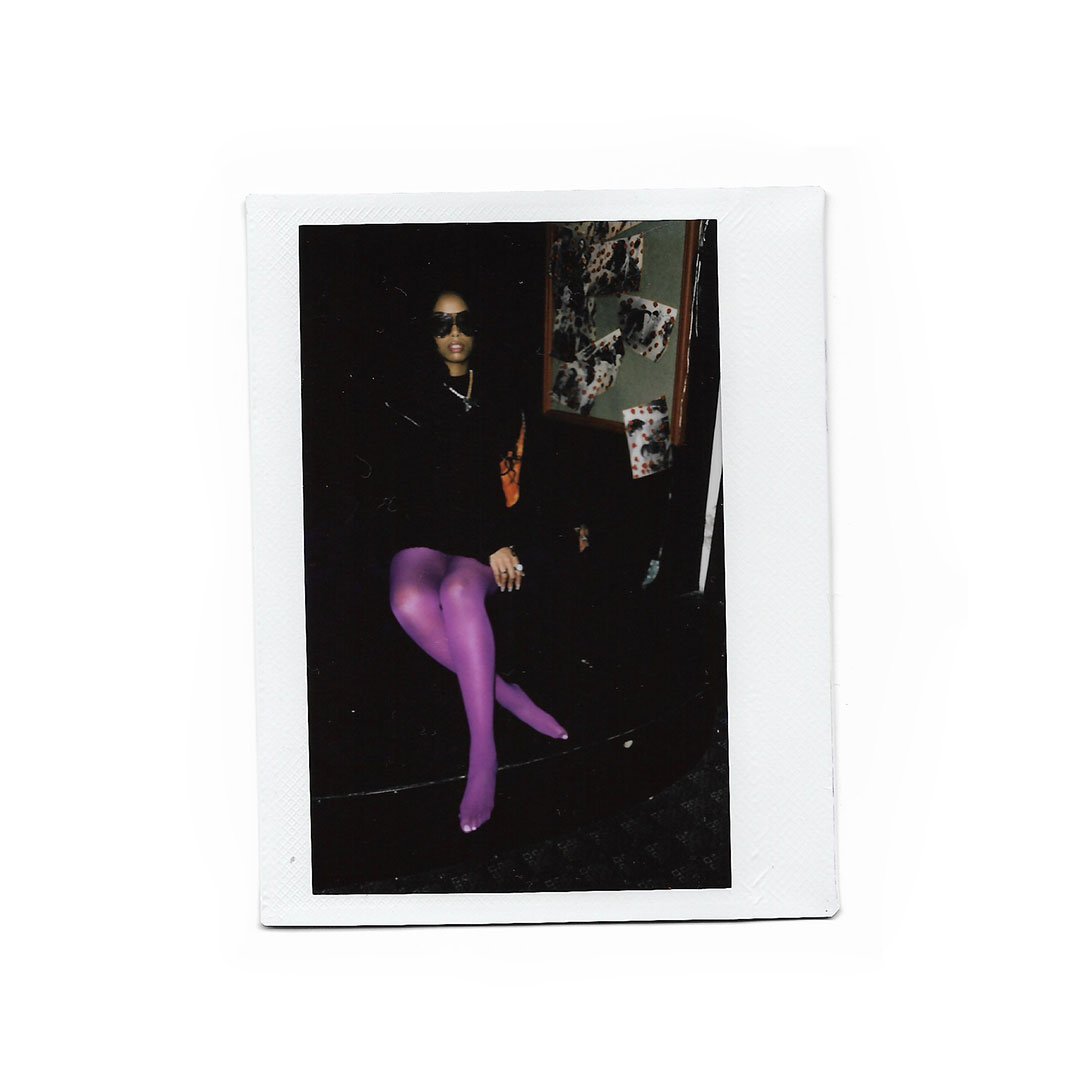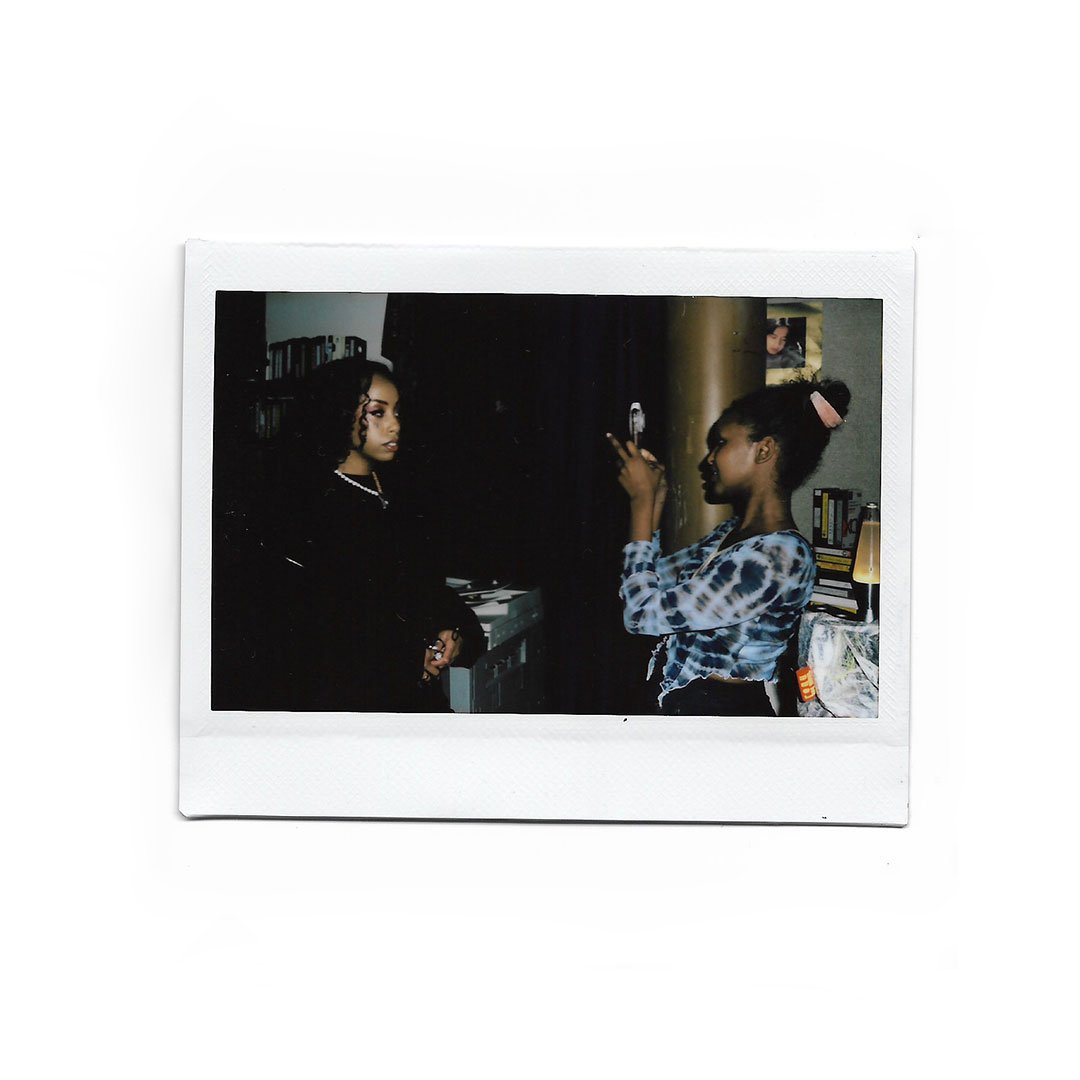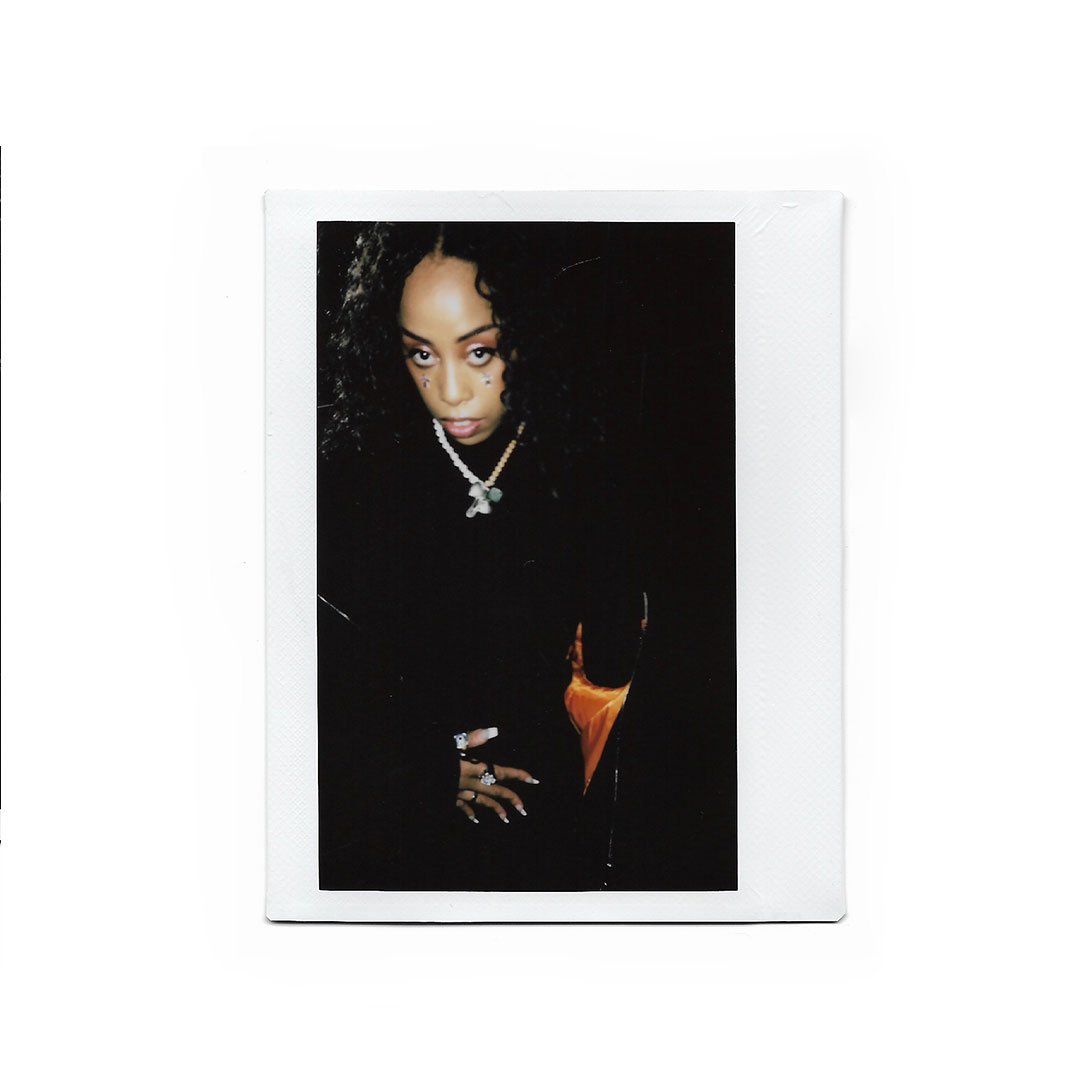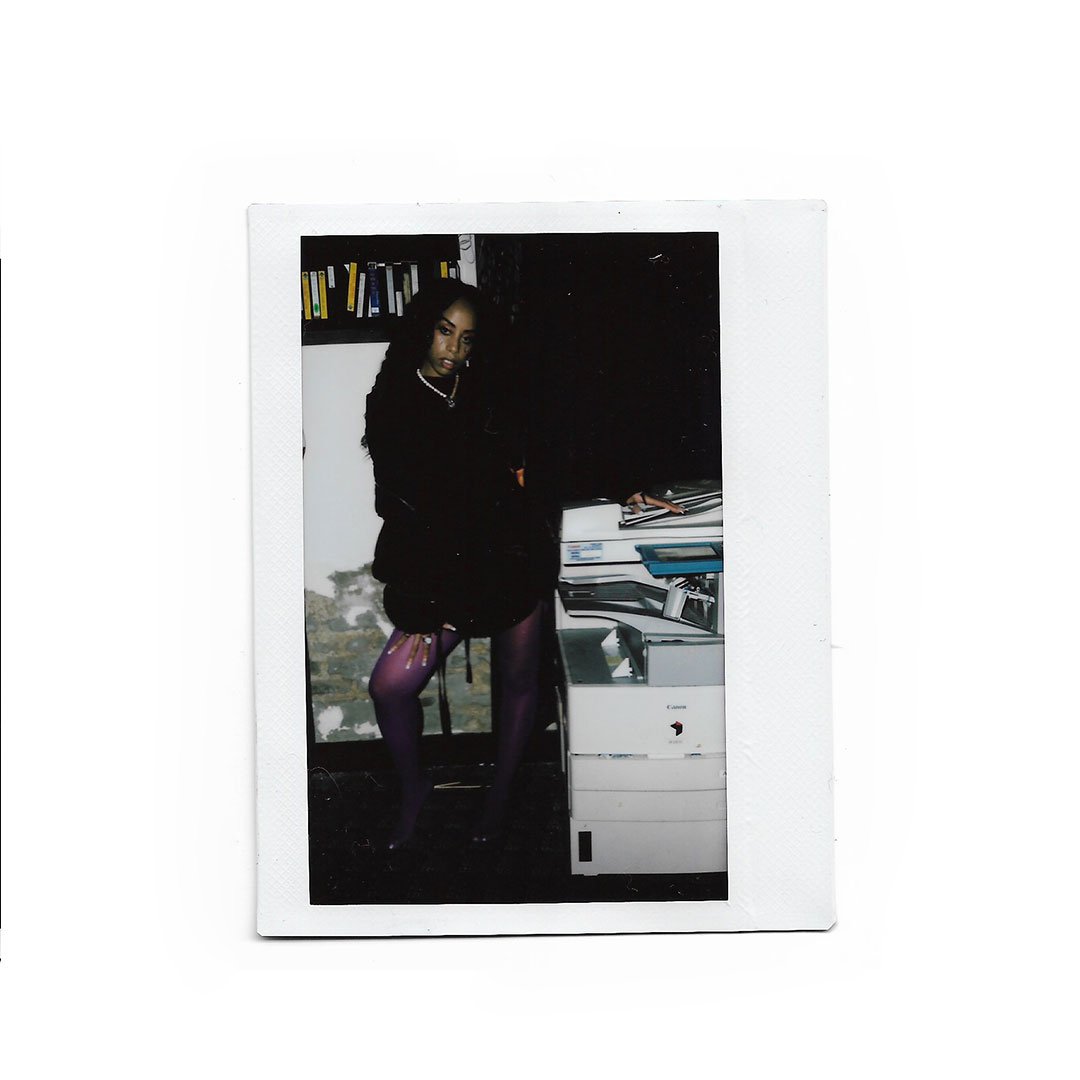ROCHELLE JORDAN: A REAL ONE
When I met Rochelle Jordan just before a show in an abandoned Chinese theatre she absolutely lit up the room with her fun, gentle, and energizing personality. I asked her DJ, Myai (DJ Chrysalis) what it was about Rochelle that made everyone so comfortable and she simply said, “She’s a real one”. This was a delayed tour after the 2021 release of her album ‘Play With the Changes”, and subsequent release of a remix album featuring artists like Kaytranada and Soul Clap. Even after a 2 year delay, a week of shows and an entire day and night of working and shooting, her 11pm headline show was still full of energy, style, beautiful and relaxed dance work between her and DJ Chrysalis (imagine you and your best friend dancing to early 2000s R&B in your bedroom absolutely going off), and of course her incredible, incredible voice. Here is a person who is comfortable, who is present, who is aware of herself and her needs, and who channels that into being a Goddess on stage. Eventually we managed to chat and I asked her about the way she approaches self-care and different systems of working. As she expounded on her own health journey, her awareness of what is needed to make an artist truly comfortable to be themselves and make the best music they can was very grounding. Meeting Rochelle and seeing her level of care and respect for herself and the people around her is truly a model we all need to be looking at, and not just in the music industry. From taking the pressure off yourself and just writing, to deleting the idea of perfect for the reality that is you, it was beautiful to learn that the Goddess onstage was a real self made one, rather than just a sparkling image.
You’ve said that you an introverted loner when you make music, is that still true?
It is very much true. I've been creating the same way since 2009, literally in my bedroom by myself. I’ll collect the beats from the producers that I work with, once in a while we do get together and go into studio, but it's not for me to come up with the full conceptual idea. It's not until I'm in my closet with my computer where I feel that energy coming through me, and for me to come out with songs that I really love. I love producing vocals, that's my favorite part. When it comes to creating my songs I'm very fast when I create. So if I'm recording something, and it's not right, I'll do that take a million times until it's exactly what I want it to be. I'm so OCD and precise.
Your music pulls from Dance and R&B and genres that are fully live and involve movement and giant crowds of people, do you think it’s funny that you work in such an isolated way or is it just what works for you?
I think it's all about what works for you as the artist. There are artists that love the studio, they’re studio rats and they're there until 7am, and they have all their friends, and they're smoking weed, and they're drinking. For some people, they need the other energies in the room to fill the space for them to flow. Beautiful music comes out like that, or trash music comes out like that. It’s the same when you’re alone, trash music can come out or beautiful music. It just really depends on the person's personality and how they feel the most comfortable expressing themselves.
With the remix album of ‘Play With the Changes’ there are so many musically diverse artists. I would not say that ‘LSDXOXO’ is the anywhere near the same as ‘Kaytranada’. How was the process of being alone to make the album and then trusting people with your personal work and getting such different tracks back?
It was easy because all the artists that we wanted to remix these tracks are incredible. All of them hold such identity in what it is that they do and how they create that. It was extremely fun for me to hear their perception and perspectives on these tracks, because, you know, you kind of hear an album and you love it through and through and it's cemented as this very specific piece in your mind. But to have them literally “play with the changes” was just like, wow, this is actually the content, it's not just a title. We were actually getting to experience and playing with changes within the music in and of itself. I was very much hands off. I didn't give them any ideas. We just literally gave them the vocals and each one of these producers did their thing and it turned out to be incredible. I would say the remix album is part of ’Play with the Changes’; it's all together one entity to me. It's matching projects, it's cohesive, it's one body of work but two separate perspectives overall.
Does the fact that at its root Dance music originated from African American, POC and LGBTQIA+ community have any influence on your work, or do you think that’s why you’re drawn to it as a form?
I discovered in my later years that it started with People of Colour, Black people, LGBTQIA+ queer people. This was a community that had begun this basically speeding up of Soul Music into Disco that then ran down into House and then it evolved into EDM, and all the other electronic genres. I've always basked in Garage music, House music, and Dance music because of my British roots. My older brothers were heavily into music like Gospel, House, and all kinds of mixes in the electronic space. But it wasn't until I started creating that I was getting into these different artists and realising, whoa, this runs very deep and it's also why it feels the way it feels. I was feeling myself moving into a very joyous place in music that I've never been in my life. Creating in the R&B space is great expression, it's very, very emotional expression and that's what I needed in those younger years of my life. But being able to now go back to my adolescence, reach to the place in my mind of music that influenced me as a child, hearing these different electronic spaces just running through the house musically from my brothers, I realized that it makes so much sense. When you look at the community of people, these are groups that are minority groups that are often faced with a lot of combativeness, a lot of disregard, and things of that nature. So to find that kind of power in this type of music, that solace and that connection and that happiness, it just made complete and total sense to me. So regardless of the space being very much filled with white males that dominate it, you know, if you're just the average consumer looking in, that's all the faces that you would see. I still felt very empowered. I didn't feel afraid to really tap into this, I felt happy and excited because that's what the music spoke to me personally.
“It really goes to show that everyone's story is different, and that we shouldn't put a cap on our value, as women, as we age, it actually gets better, it actually becomes more iconic. We're able to move through the threshold of societal biases, this is what it's about.”
What were your favorite nostalgic records that remind you of your dad and your brothers?
‘Sounds of Blackness’, specifically the track ‘Optimistic’ reminds me a lot of my brothers specifically. I love that song. I'm going to play it after this interview. It just brings me so much joy, it brings me back to me at like seven or eight. For my dad, I would say, ‘Night Nurse’ by ‘Gregory Isaaks’. We would just hear so much Reggae music on Saturdays. Everyone's cleaning and it would blast through the house. Also Fred Hammond on the gospel side of things.
Apart from the amazing community what is there technically that lets people can get lost in movement and release themselves?
Music is something that's spiritual to me, it's very hard to grasp it and hard to explain it. It’s just a feeling that you get. So one thing I can say is there’s energy and spirituality within the chords, and within the vibe of House and Dance music. Then tempo is just energy, and lifting you up, moving you and keeping your body moving. So I think those two things combined just called upon a certain demographic of people that needed it the most.
In terms of the lyrical side, your music talks through real stories and taps into real and complex emotion. Did it take a while to learn how to turn that into sound? Or do you just let it happen straight from your gut?
Writing is not easy, you know, you have to be in tune with the higher power. That's how I feel personally about it. So when I express, I'm open, and I'm doing my best to be as clear and making sure that I'm being as authentic as I can be to the experience that I'm talking about. The song might not be perfect. Maybe I'm over explaining in the song. Maybe I'm not explaining enough in the song, but it is a true expression. This is how I truly feel. I'm just continuing to practice to leave it at that. That's it. That's me, it's the true me that you're going to get every time.
In the last few months I have been so excited because I've been able to go and see about four concerts of my musical heroes who are all women with life spanning music careers who are over 50. What are your plans in getting to that stage of your life?
Honestly I'm trying to get to this Janet Jackson concert out here come this Summer, it's an absolute must. These women like Mariah Carey. I can only imagine her story and what living that would have been like. Tina Turner also, you know, another iconic story where she wasn't signed as Tina Turner to a label until her 40s. You look at these women and their stories are extremely powerful. It really goes to show that everyone's story is different, and that we shouldn't put a cap on our value, as women, as we age, it actually gets better, it actually becomes more iconic. We're able to move through the threshold of societal biases, this is what it's about. When I think about myself I see myself very much like Sadé. Goodbye, good riddance, and you guys can never get a hold of me until I'm ready. I find it so freaking iconic to move out of the industry on your own terms. You just knowing “It's okay for me to leave. I'm in control. I'm the powerful one. This is my art and I'll be back when I want to.” What I do know is that I want to forever be in control of my crafts. I never want to feel like I'd have to keep up with trends or with society, or with all the pressures that they would put on me as a female artist, I will do things on my terms, in my way, at the right time.
You have openly talked about how you’ve had to deal with self-care and prioritize your own health. When you need time off from your art how do you negotiate that?
As someone who deals with Sickle Cell Anemia, and having had that since I was young, and knowing the waves and when it comes, and what to do, and how to go about it, it's important to me that my entire team understands that. I get sick more often than the average person so I can't do tours that are every single day in for 25 days in a row. That can be a detriment to me. That is self-care, acknowledging your truth and letting everyone around you know what's going on. And creating a schedule for yourself that relieves you of the pressure of getting sick. You're able to damage control before things get out of control. That to me is self-love and self-care. I also used to feel like I was going to be an issue. I was like, you know, they're going to think she's not going to be able to tour like that, or she's going to be tired on stage. But as I got wiser I started to understand, no, we all have issues. This is mine. And I need to be empowered by it. This is my story. And someone else out there wants to be an artist who that has the same condition that I have. It's important. You know, that's huge.
Why should that one thing stop you from making beautiful music?
None of these things should stop us from anything, this is your dream and you're capable.
You can see more from Rochelle here / Words by Alex Officer / Film + Polaroids by Simone Taylor / Styling and Digis by Jaida White / MU by Yasmin Goonweyn / Shout out to Myai & Jerry <3
Pants: Coach / Tops: Karameolan // Dress & jacket: Dior / Tights: stylist owns / Jewellery: Coach


